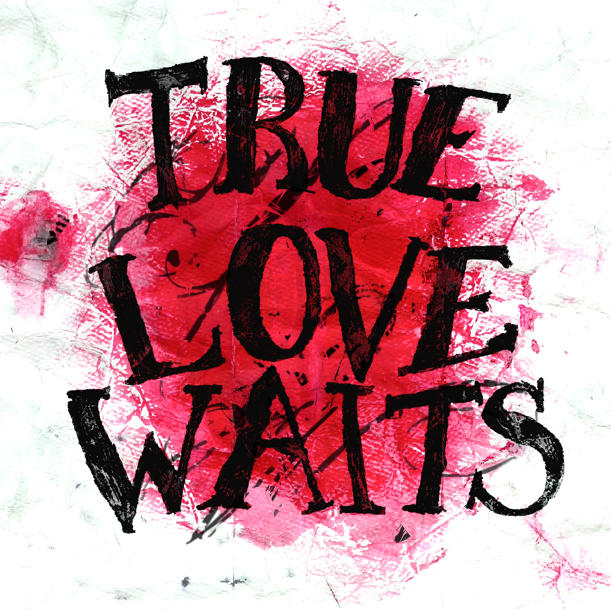I’ve struggled for decades with what Brené Brown calls scarcity: the never enough problem (Daring Greatly).
I was a perfect candidate for the Purity Culture and its honey-dipped razor blade: your virginity is a priceless gift that can be used as a gift and a weapon. It could be proof that you were valuable, that you were abundantly good enough to get all that God wanted for you: husband, kids, honor, recognition, value.
But if you were too virginal and modest, no guy would ever notice you.
Walking the Line
As the narrator for my public high school’s production of Into the Woods, I funneled all my seduction into the one place I could showcase it, without being called a whore: the stage.
I suggested a costume change for every scene, a different prom dress to match the mood. The director loved the idea.
I wore a blood-red fishtail number for the scene when the Wolf and Little Red Riding Hood devour each other.
I walked the line and I still got to wear my purity necklace. I proved to the packed audience every night that I was desire-able and unattainable. I had never felt so powerful.
Growing Shame
In a recent interview with sex therapist and professor, Dr. Tina Schermer Sellers I learned I am not alone. For the last 22 years, Sellers has taught over 500 graduate students in her “Human Sexuality” class where she assigns a sexual autobiography to transform fragmentation into a whole sexual story. Sellers noted, “In early 2000, students from conservative backgrounds were beginning to describe levels of shame I hadn’t seen except in people who had experienced sexual assault.”
I am bad.
Bad things happened because of me.
I am disgusted with my bodies, this longing, this sexual power.
Sellers says, “There was self-loathing that was stunning to me. I asked myself, ‘How could the church be creating more pain, an epidemic of shame?’ Her answer begins with the Purity Movement of 1992. The “True Love Waits” movement that washed over church-attending, Bible-toting, God-seeking adolescences.

I was one of them.
When Sellers asked for narratives of how her students learned about their sexuality, she heard the purity culture lines that the blogosphere is still processing from Elizabeth Smart’s Johns Hopkins’ Human Trafficking Forum.
Teens in the early 1990’s began to hear that sex before marriage was like taking a bite out of an apple, a lick from a lollipop. After everyone had taken a bite, a lick what’s left?
Elizabeth Smart told us.
Purity culture doesn’t just shame girls. Dr. Sellers’ students told stories of split gender sex talks where the guys were told how dangerous they could be. Guys left feeling mortified, beat up, and wondering if “the only safe penis is a soft penis.” When they reunited, the girls were all wearing tiaras because they had learned that all women were princess who must guard their purity.
When I asked Sellers where we had gotten off track she suggested that there is a long-standing tradition in Christianity that if you deny your body you’re more spiritual than anyone else.
Purity Psychology
This one-upmanship is the perfect base for a shame culture. Brown talks about shame-prone cultures being “steeped in comparison and fractured by disengagement” (Daring Greatly, 27).
And what better place for women to compare than sexual purity? I bought the whole purity angle, not because I was an idiot, but because I wanted to be valued. If sex was the one sure way a woman proved her worth, then I vowed to go one step farther. I would never kiss a guy until I was engaged.
I’d show them how pure I could be. And I would strong-arm God into giving me what I needed.
But my story had some bends I hadn’t anticipated. My widely announced engagement ended with a break-up.
 I now know I could never have broken it off, even knowing how unsuited we were for each other, if we had slept together. The purity culture ran so strong in my family, I would rather endure an unhappy marriage, a stunted relationship, a corseted soul than be impure.
I now know I could never have broken it off, even knowing how unsuited we were for each other, if we had slept together. The purity culture ran so strong in my family, I would rather endure an unhappy marriage, a stunted relationship, a corseted soul than be impure.
 I now know I could never have broken it off, even knowing how unsuited we were for each other, if we had slept together. The purity culture ran so strong in my family, I would rather endure an unhappy marriage, a stunted relationship, a corseted soul than be impure.
I now know I could never have broken it off, even knowing how unsuited we were for each other, if we had slept together. The purity culture ran so strong in my family, I would rather endure an unhappy marriage, a stunted relationship, a corseted soul than be impure.
Virginity is measurable, so it makes a perfect litmus test for godliness. But last I checked, virginity is not listed in the fruits of the Spirit. I speak from experience that you can maintain your virginal status with sexual pride or sexual fear as much as sexual self-control.
Purity is one of the only places Christians treat sin as un-degreed. If you lose your virginity, you’re beyond rehabilitation. As psychologist Paul Rosin illustrates, like a pure glass of water polluted with a dead cockroach, there’s no going back. Regardless of my removing the cockroach and purifying the water, would you drink it? (Thank you, to Richard Beck’s “Elizabeth Smart and the Psychology of the Christian Purity Culture” for this insight). Once tainted, there’s no re-purification process. We treat virginity differently than stealing, lying, even murder.
Fighting Shame
If Jesus has overcome the world, then he is not for the idea that any sin can permanently break us. I believe it’s time we became more creative in fighting shame. No woman is a chewed-up piece of gum (more here, minute 10). No man is a degraded sex-crazed animal. And we don’t have to ditch all purity education, in fact, my purity ring, my parent’s belief in my self-control gave me some chutzpah to do some daring things in the back seats of cars. Daring things like zip up my dress and call it a night. (The positive side of abstinence education).
But, I do suggest we call purity something more accurate to reality: chastity, respect, integrity, fully human sexuality? We can get better with our words.
The more men who share their sexual mistakes and hunger for intimacy, the more women who share their sexual mistakes and current sexual joy, the more we can break the power of shame and the myth that sexual purity is the ultimate moral high ground. And perhaps young girls won’t feel they must walk a line of seduction and purity to prove they are valuable enough.

Breaking Shame: My Shortlist
When we share our secrets, we start realizing we all have the same secrets.
- Start practicing sharing your sexual secrets with your journal, God, your closest friend.
- Share your sexual secrets with a mentor or therapist and walk out of shame.
- Share your sexual secrets and recovery with your children, your youth or college groups.
- Face your own shame in your romantic relationship. Attend one of Dr. Sellers Intimacy Retreats.
- Work with your youth leaders, local pregnancy center,s and Christian school leaders to develop a chastity ethic that intentionally includes recovery from sexual shame, sexual histories, rape and molestation survivors . Want a post on this fully human sexual ethic? Ask me, and I’ll write it.
What are yours?









Recent Comments